Search Images
Browse Content (p. 1346)
![Illegally Excavated Mesopotamian Clay Tablet [4]](https://www.worldhistory.org/img/c/p/360x202/7099.jpg?v=1599475502)
Image
Illegally Excavated Mesopotamian Clay Tablet [4]
This clay tablet was illegally excavated. The precise provenance of the excavation is unknown, but probably from Southern Mesopotamia, modern-day Iraq. It is currently housed in the Sulaymaniyah Museum, Iraqi Kurdistan.
![Illegally Excavated Mesopotamian Clay Tablet [6]](https://www.worldhistory.org/img/c/p/360x202/7100.jpg?v=1599475503)
Image
Illegally Excavated Mesopotamian Clay Tablet [6]
This clay tablet was illegally excavated. The precise provenance of the excavation is unknown, but probably from Southern Mesopotamia, modern-day Iraq. It is currently housed in the Sulaymaniyah Museum, Iraqi Kurdistan.
![Illegally Excavated Mesopotamian Clay Tablet [3]](https://www.worldhistory.org/img/c/p/360x202/7101.jpg?v=1599475503)
Image
Illegally Excavated Mesopotamian Clay Tablet [3]
This clay tablet was illegally excavated. The precise provenance of the excavation is unknown, but probably from Southern Mesopotamia, modern-day Iraq. It is currently housed in the Sulaymaniyah Museum, Iraqi Kurdistan.
![Illegally Excavated Mesopotamian Clay Tablet [9]](https://www.worldhistory.org/img/c/p/360x202/7102.jpg?v=1599475503)
Image
Illegally Excavated Mesopotamian Clay Tablet [9]
This clay tablet was illegally excavated. The precise provenance of the excavation is unknown, but probably from Southern Mesopotamia, modern-day Iraq. It is currently housed in the Sulaymaniyah Museum, Iraqi Kurdistan.

Image
Terracotta Aphrodite, Brundisium
A terracotta figurine depicting Aphrodite emerging from a shell, Brundisium, southern Italy. 3rd century BCE. (Archaeological Museum of Brindisi, Italy)
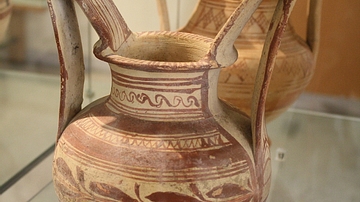
Image
Two-handled Vase, Brundisium
The two-handled pottery vessel (trozella) which was unique to the Messappian culture of southern Italy. 5th century BCE, Brundisum, southern Italy. (Archaeological Museum of Brindisi, Italy)
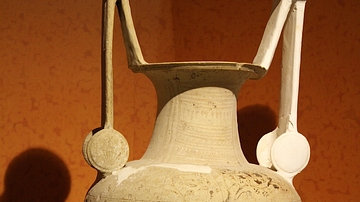
Image
Messapian Trozella Vase, Valesio
The two-handled pottery vessel (trozella) which was unique to the Messappian culture of southern Italy. This version dates to the 4th century BCE and was probably used for funerary purposes. From Valesio near Brundisum, southern Italy. (Archaeological...
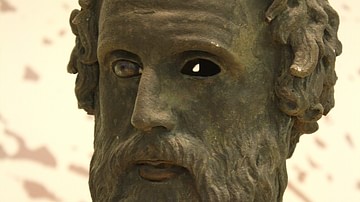
Image
Head of a Philosopher, Brundisium
The bronze head of a Greek philosopher. 4th century BCE, Brundisium, southern Italy. (Archaeological Museum of Brindisi, Italy)
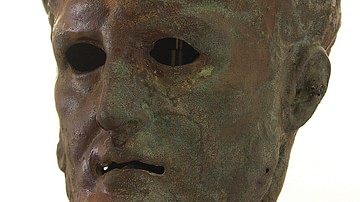
Image
Hellenistic Prince, Brundisium
A bronze figure known as the Hellenistic Prince, Brundisium, southern Italy, 2nd-1st century BCE. (Archaeological Museum of Brindisi, Italy)
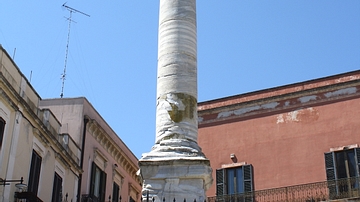
Image
End of the Appian Way Column Marker
A 19.2 m marble column which dates to the 1st century BCE and was part of an honorary monument in Brindisum. Traditionally, the column was thought to mark the end of the Roman road the via Appia (Appian Way) but inscriptions on the column...